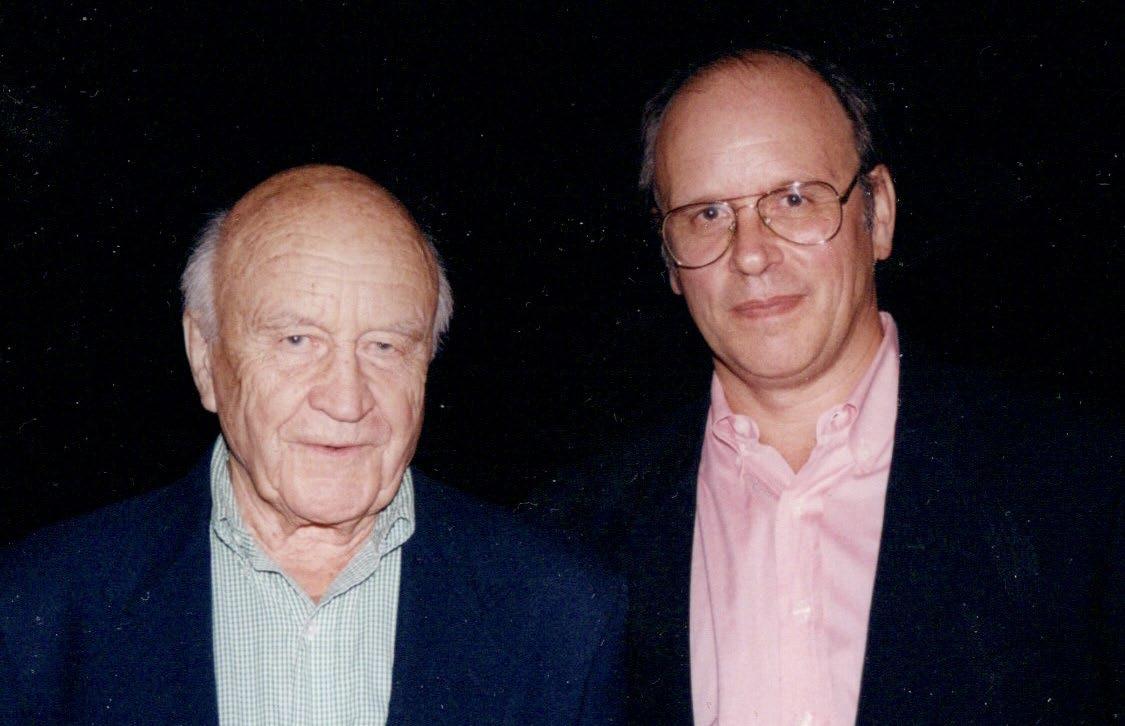
5 minute read
LEGACY REVISTED
By Peter Briggs, Chairman of Squash
Legacy is not leaving something for people—it’s leaving something in people. -Peter Strople
My dad used to say that as human beings, we all have a mandate to attempt three things: write one’s autobiography, write bad poetry—even if just for the purpose of self-reflection—and aspire to leave a legacy of having gone out of our way to help our fellow man. Succeed or fail, the nobility lies in the attempt.
The challenge of life is actually quite simple. Live with a purpose. Be useful for as long as your mind and body allow. Think quality rather than quantity. Create value. Each generation's salvation, redemption, and relevance depends upon its ability to envision something transformative that embodies an emotional and spiritual insight that can be preserved, chronicled, and handed down by teaching life lessons to the next generation. Understand that ideas and stories have power. Heroic exploits inspire others to strive for more and raise the bar in their own lives. Know that our true legacy is essentially what choices did we make and why. How many hearts and souls did we touch and who and how did we love? It's always been and will continue to be a matter of the mind and the heart. The nuances and intangibles of personal relationships. It actually will be the little things, the minutia and the simple acts of empathy, sympathy, and compassion that we bring to our fellow man every day that establish our personal and collective legacy. That is the stuff that will carry the day and outlive us. Did we traffic in honesty and the truth?
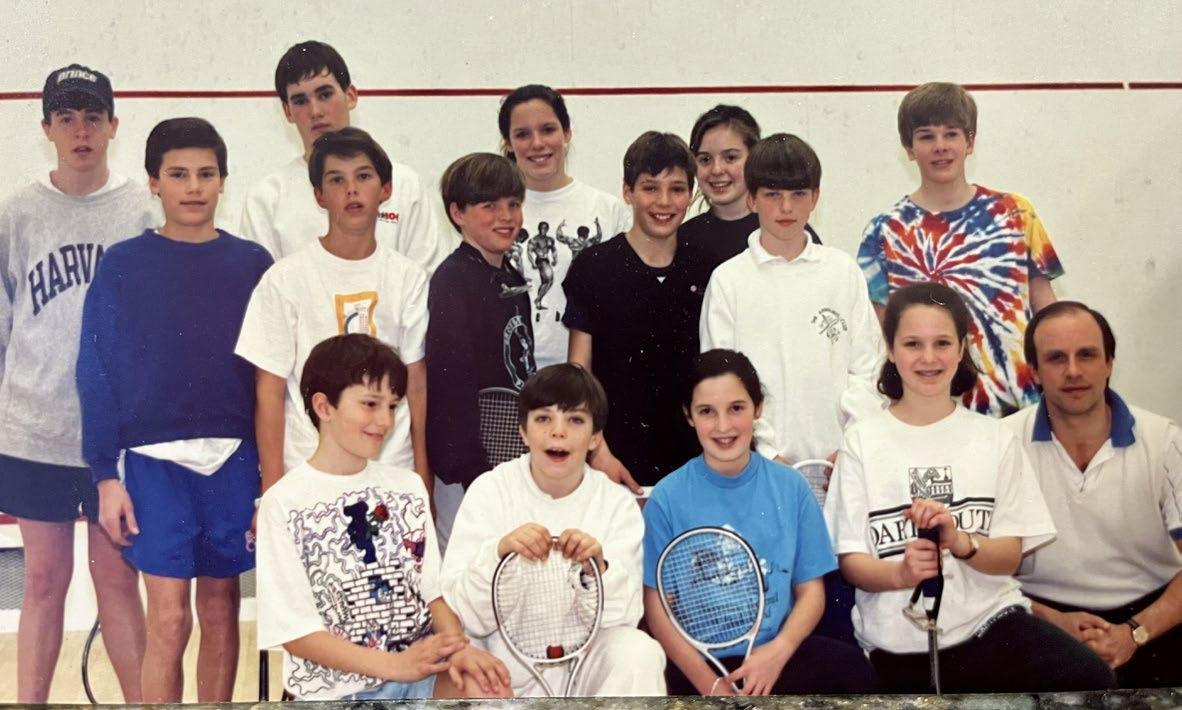
One hundred years from now what will be the ongoing legacy of the Apawamis squash program? Will the exhortative quotes and stories, photos and pictures of great players from past eras and generations that adorn the Squash House walls still inspire the current generation to set goals, thereby ensuring that, with great effort, the future generation’s hopes and dreams are attainable as well? Hopefully. Each new generation of players has the collective responsibility to be aware of and honor the exploits of the generation that went before them. It’s the “circle of life.” Can we control our egos and strive to be a part of something bigger than ourselves?
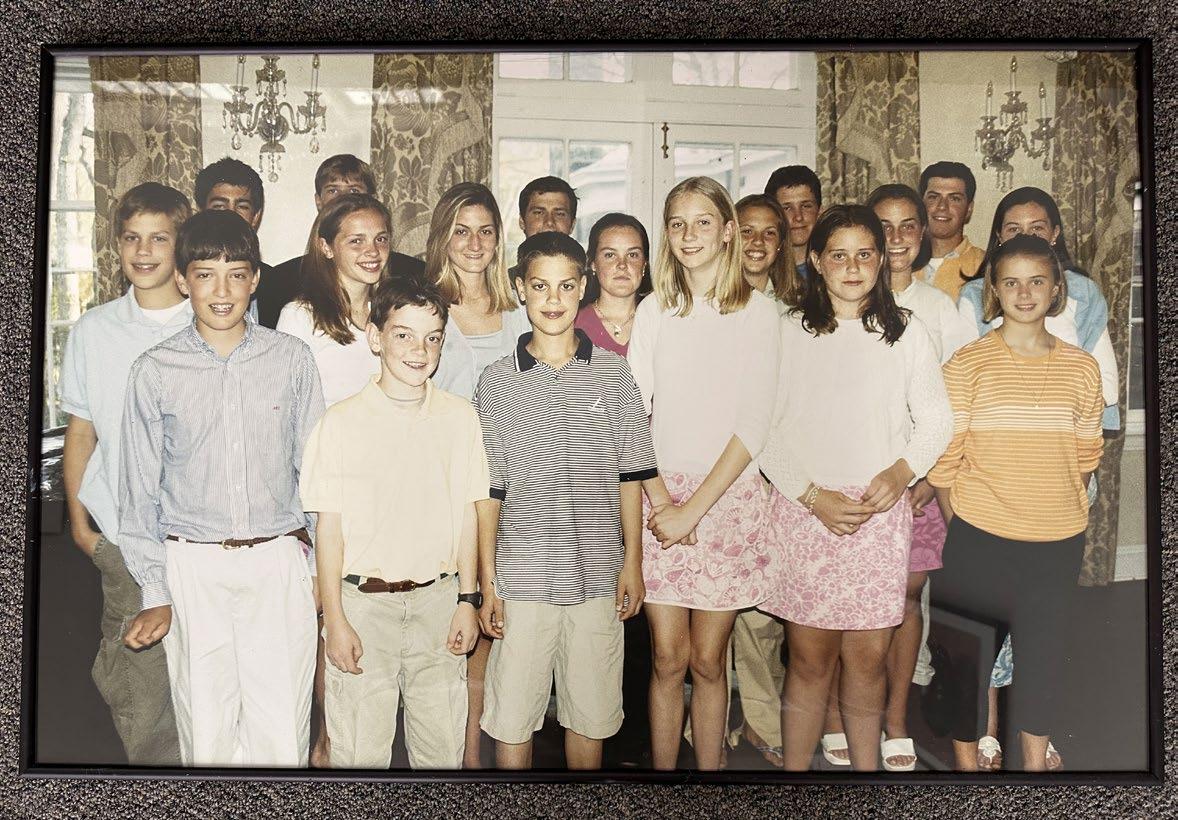
With any luck—if I’m still around—the squash program will continue to embrace much of the same ethos and tenets that I feel are so important and critical today for the meaningful emotional, spiritual, and physical development of its participants of all ages. The overriding purpose of a successful program is to build self-esteem and self-confidence in the individual. Nurture the idea of the student-athlete. Academics first, sports second. Teach the value of accountability, leadership, responsibility, and equal treatment of all. Teach players how to win and lose with grace and good sportsmanship. Understand that the purpose of sports is to learn about oneself, embrace the camaraderie of shared experience, and above all, to make friends for life. In this day and age, the opportunity to play sports at Apawamis and develop meaningful and lifelong friendships is a precious gift not given to many and should be treated as such.
Ask yourself what is the mission of a school or a club, a team, a program, a coach—or for that matter, a parent—if not to launch, nurture, and attempt to instill a strong moral compass and code of ethics in our children.
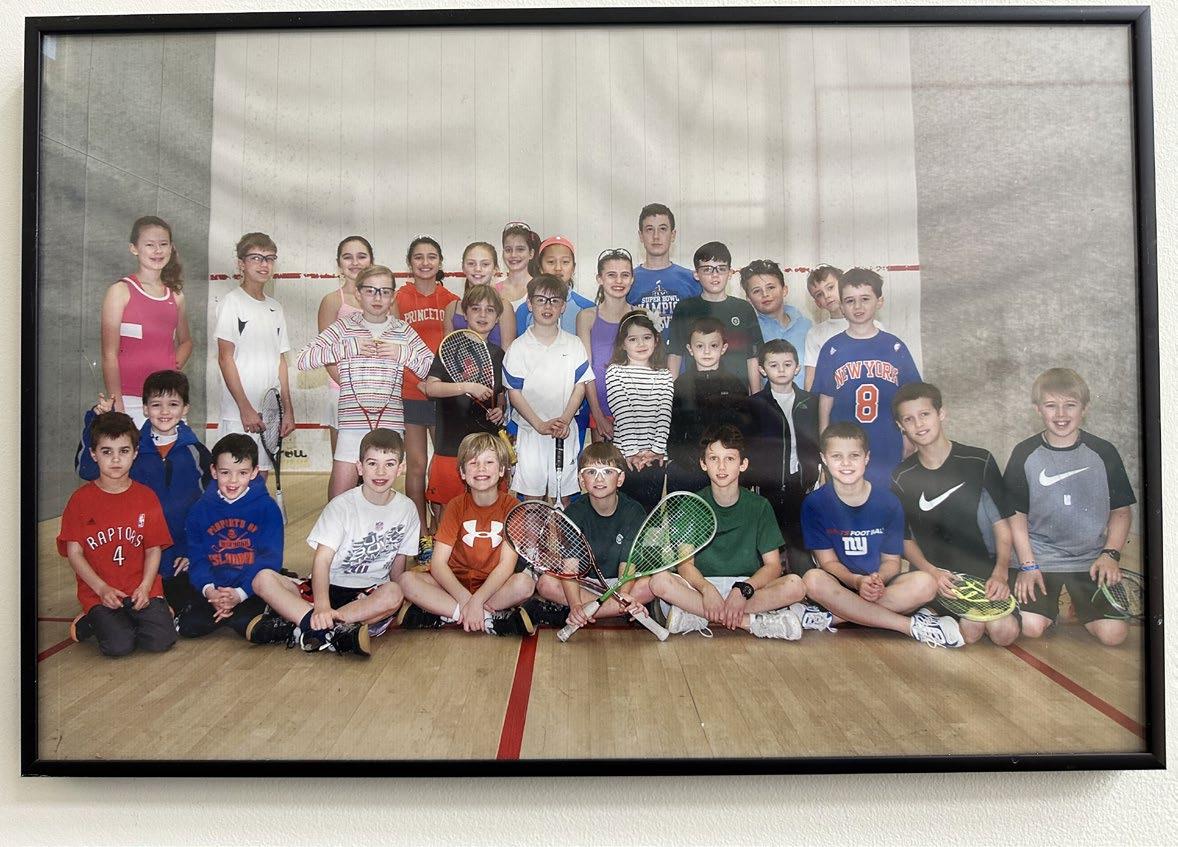
There are multitudes of clubs in the area that advertise to be “family clubs.” Apawamis is among the vanguard. I have never been around a club that better embraces and prioritizes its youth with all their collective dreams and endeavors than Apawamis. The juniors and the children are the lifeblood, the wellspring, and the hope for the future. As I tell my pupils, my career is over and yours is just beginning. Listen and learn from my successes and my failures. Allow me to teach you.
Current parents who grew up experiencing the Apawamis Squash program, as well as all the other sports programs, now return to join the Club because they want the same experiences and memories for their kids. As a coach, nothing heartens me more than to teach multiple generations of the same family.
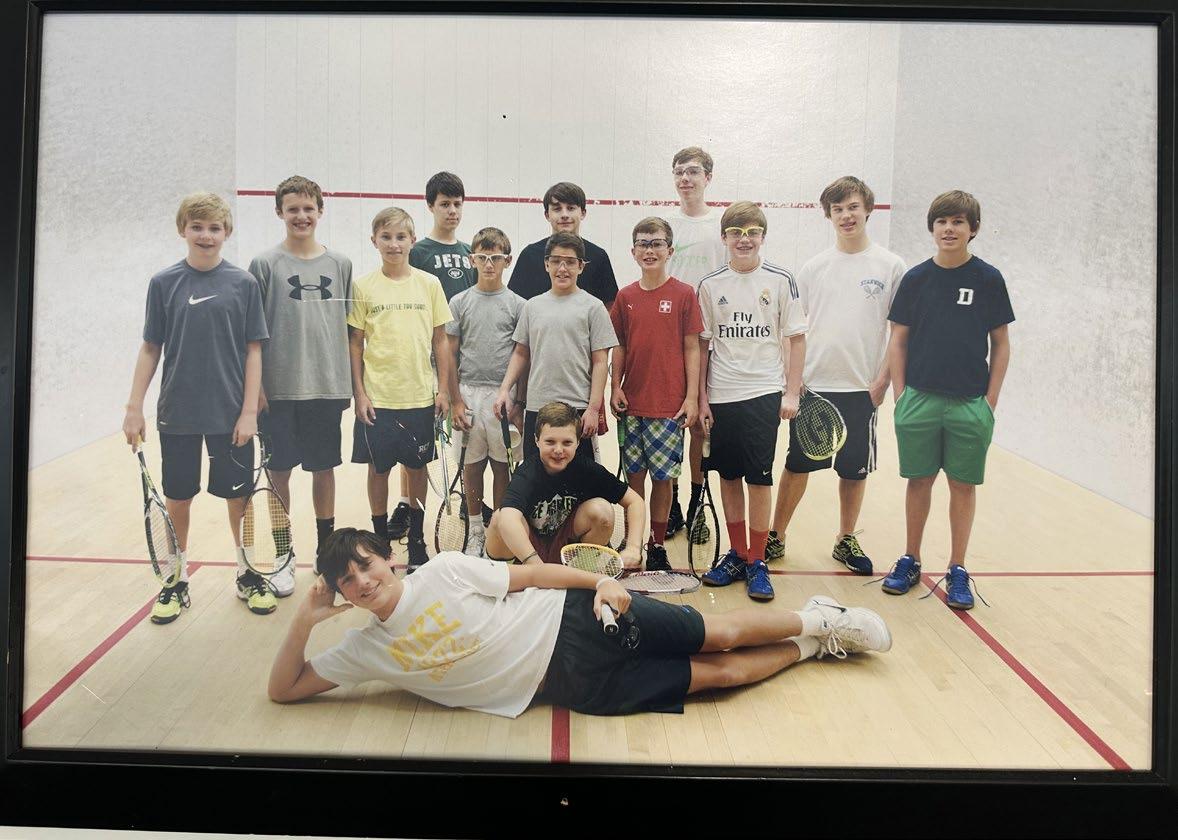
Aristotle said, “Our children are the legacy we leave for the time that we will not live to see. Kind and educated children are the most powerful legacy we can leave behind.”
How and what we teach our children in their formative years is definitive. Can we give them a moral and ethical template that they can use as a “North Star” to guide them through the tumultuous times and unchartered waters that lie ahead of them? That will be our successful or failed legacy. The Apawamis Club and its accompanying infrastructure and sports programs are essentially the vehicles at our disposal to teach and instill these valuable life lessons.
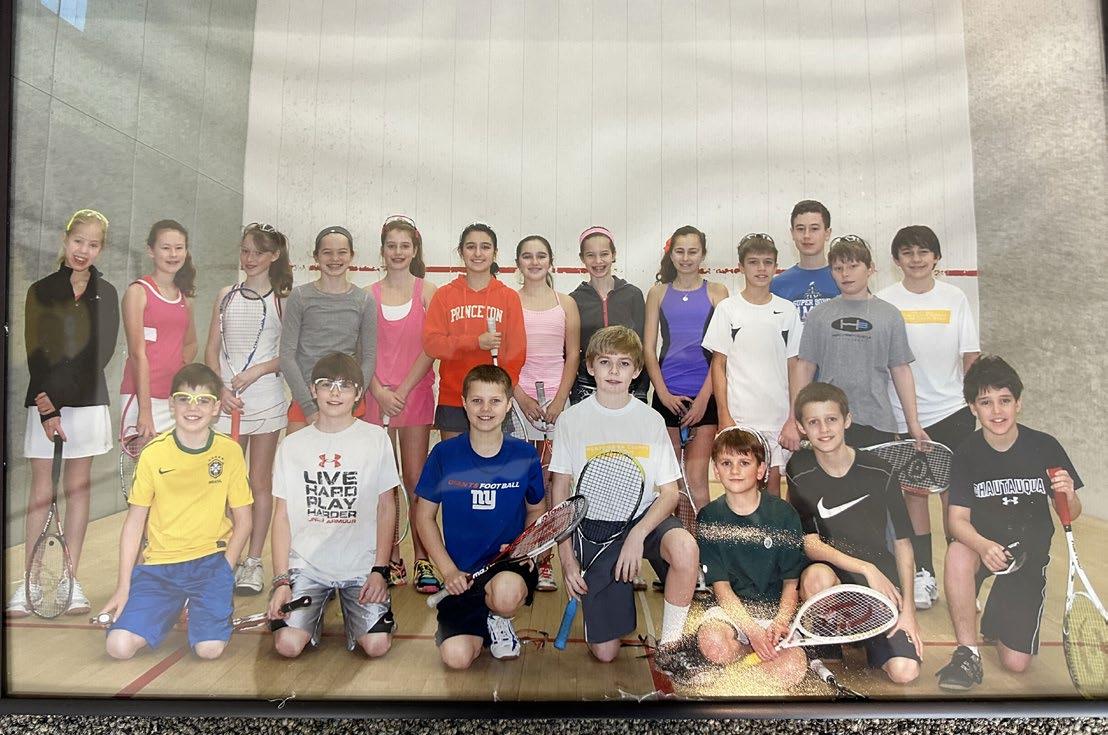
I am convinced that the greatest legacy we can leave our children are happy memories: those precious moments so much like pebbles on the beach that are plucked from the white sand and placed in tiny boxes that lay undisturbed on tall shelves until one day they spill out and time repeats itself with joy and sweet sadness in the child now an adult. Og Mandino
As I proffered years ago, if a parent can leave their children here at the Squash House in the morning at 9 a.m. and feel that they will be safe and pick them up again at night at 9 p.m. and know that perhaps they have learned something about life and themselves, then I am satisfied with that as my legacy.


